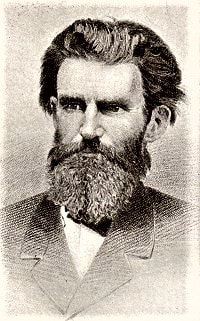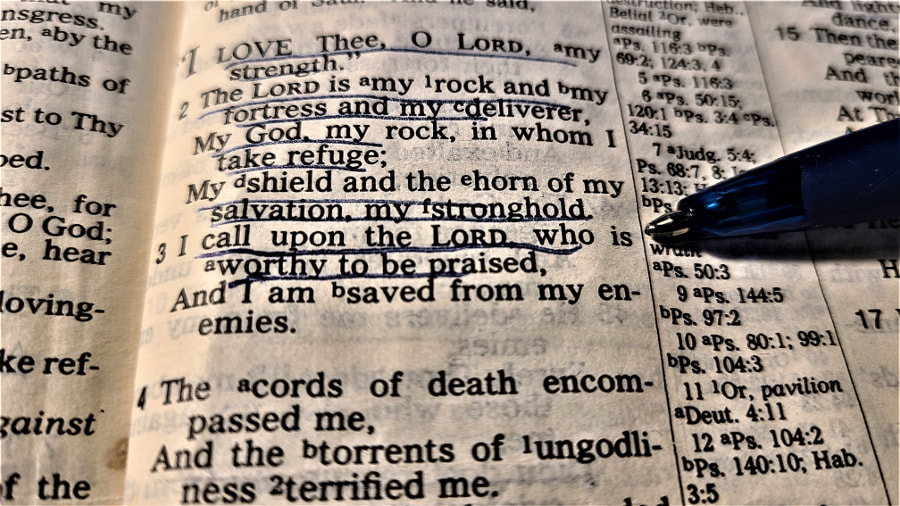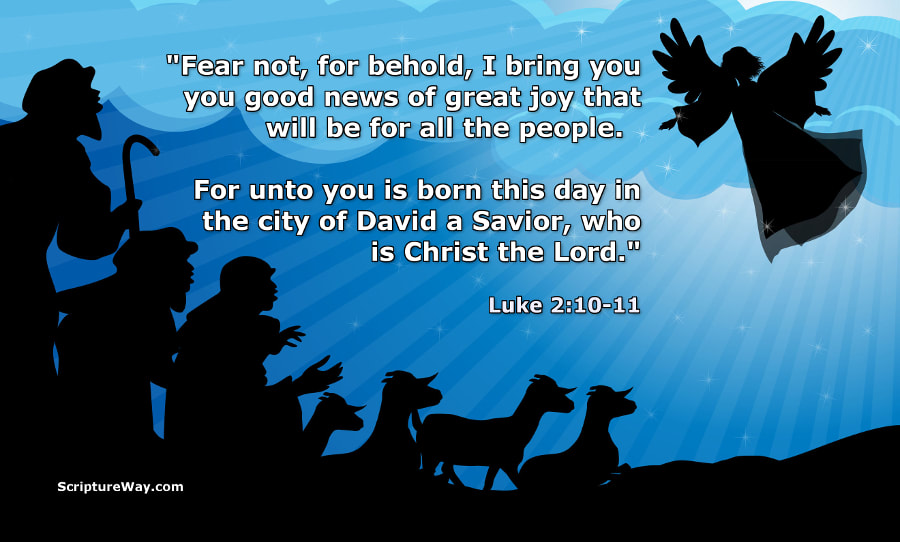This lesson explains what "to be saved" means in the Old Testament of the Bible. In the Old Testament "to be saved" means to be delivered by God into safety.
This lesson uses scripture quotations from the English Standard Version (ESV) and the New American Standard Bible (NASB) (Ref. 1) unless noted otherwise.
Consider. What do the words, "to be saved," mean to you in the religious sense?
1. "To be saved" in the Old Testament means "to be delivered"
The Old Testament Hebrew word for saved is yasha, pronounced (yaw-shah'). Yasha means to deliver (Ref. 2). To be saved means to be delivered with the implication of being delivered by God into safety. Strong's Exhaustive Concordance translates yasha as help, preserve, rescue, be safe, and savior (saviour) (Ref. 2). Brown-Driver-Briggs adds the meanings of to make wide, spacious, and liberate (Ref. 2).
Items "a" through "d" below provide examples from the Old Testament for what it means to be saved. a. Delivered by God from all enemies
Psalm 18:3 -- "I call upon the Lord, who is worthy to be praised, and I am saved from my enemies." David wrote this psalm of deliverance early in his reign when God had recently delivered him from the Philistines as well as from Saul (2 Samuel 21:15-2 Samuel 22:4). In Hebrew, the tenses of David's calling upon the Lord and being saved are frequentive (present), describing "David’s habitual experience of God’s readiness to answer prayer" (Ref. 3).
b. Delivered by God from all foes - physical and spiritual(1). Calamities and distresses
1 Samuel 10:19 -- The prophet Samuel said to the Israelite people, "But today you have rejected your God, who saves you from all your calamities and your distresses, and you have said to him, ‘Set a king over us.’ Now therefore present yourselves before the Lord by your tribes and by your thousands."
(2). Troubles
Psalm 34:6 -- David writes, "This poor man cried, and the Lord heard him and saved him out of all his troubles." Note that this verse does not say that as God's people we will have no troubles. This verse says that God hears us and delivers us out of our troubles.
(3). Adversaries
Exodus 14:29-30 -- "But the people of Israel walked on dry ground through the sea, the waters being a wall to them on their right hand and on their left. 30 Thus the Lord saved Israel that day from the hand of the Egyptians, and Israel saw the Egyptians dead on the seashore." God saved the Israelites that day to make his power known -- to them, to succeeding generations, and to us. See Psalm 106:7-12.
2 Chronicles 32:22 -- "So the Lord saved Hezekiah and the inhabitants of Jerusalem from the hand of Sennacherib king of Assyria and from the hand of all his enemies, and he provided for them on every side." (4). Wounds and sicknesses
Jeremiah 17:14 -- The prophet Jeremiah writes, "Heal me, O Lord, and I shall be healed; save me, and I shall be saved, for you are my praise."
The Lord saved (delivered) Hezekiah in two respects - first, from his enemy, Sennacherib (2 Chronicles 32:22), and second, in regard to his health (Isaiah 38:19-20). For background on Hezekiah's illness, prayer, and healing, read Isaiah 38:1-8. (5). Wild animals
Psalm 22:21 -- David writes, "Save me from the mouth of the lion! You have rescued me from the horns of the wild oxen!"
(6). Sin, Idols, and Moral Troubles
Ezekiel 37:23 -- "They shall not defile themselves anymore with their idols and their detestable things, or with any of their transgressions. But I will save them from all the backslidings in which they have sinned, and will cleanse them; and they shall be my people, and I will be their God." The context of this verse is the reunion of Judah and Israel into one kingdom, one nation. See Ezekiel 37:15-22.
2. God invites people to be saved (Old Testament)a. God is our Savior (Saviour). There is no other.
Isaiah 45:21 -- "And there is no other God besides Me, A righteous God and a Savior; There is none except Me."
Compare Isaiah 45:21 with Acts 4:10, 12. b. God invites all the world to turn to him and be saved.
Isaiah 45:22 -- "Turn to me and be saved, all the ends of the earth!"
Becoming saved in the religious sense requires turning away from our false gods and sins and turning towards (by implication, facing) God (Ref. 4). "The direction to look to God for salvation implies a deep conviction of helplessness and of sin; and a deep conviction that he only can save" (Ref. 5). God extends the invitation of salvation to all the world. Compare Isaiah 45:22 with John 3:16. c. God desires to save people despite their (our) sin and rebellion.
Psalm 106:6-8 -- "We have sinned like our fathers, We have gone astray, we have behaved wickedly. 7 Our fathers in Egypt did not understand Your wonders; They did not remember Your abundant kindnesses, But rebelled by the sea, at the Red Sea. 8 Nevertheless He saved them for the sake of His name, So that He might make His power known."
Compare Psalm 106:6-8 with Romans 5:8-9. d. Our response as God's people to being saved is to rejoice and to praise God.
Isaiah 25:9 KJV (italics added) -- "And it shall be said in that day, Lo, this is our God; we have waited for him, and he will save us: this is the Lord; we have waited for him, we will be glad and rejoice in his salvation."
Isaiah 38:20 NIV -- "The Lord will save me, and we will sing with stringed instruments all the days of our lives in the temple of the Lord." Psalm 95:1 -- "Oh come, let us sing to the Lord; let us make a joyful noise to the rock of our salvation!
Apply. Turn to God, and he will save you from your idols and sins. Pray to God, and he will deliver you out of your troubles as he has promised (Psalm 34:6). Rejoice in God your Savior, and praise him for his salvation.
Related Lessons
"God's Offer of Salvation and Eternal Life" (John 3:16) "What Does 'To Be Saved' Mean in the New Testament?" (Acts 16:31)
1 Comment
Photo source: FreeBibleImages.org "How think ye? If a man have an hundred sheep, and one of them be gone astray, doth he not leave ninety and nine, and go into the mountains, and seek that which is gone astray?" (Matthew 18:12 1599 Geneva Bible) This article describes the scripture allusions for verse 2 of the children's hymn, "Savior, Like a Shepherd Lead Us." In verse 2 the hymn teaches us that Jesus befriends us, guards our way, keeps watch over us, defends us from sin, and seeks us when we go astray. In the first article in this series, Ref. 1, we learned about the background for the hymn text author, Dorothy A. Thrupp, and the hymn tune composer, William B. Bradbury. We also discussed the Biblical truths in verse 1 - that Jesus is our great Shepherd who leads us, cares for us, feeds us, and protects us. Jesus has redeemed us ("bought us"), and we belong to him (Ref. 1). Consider. At what time or times in your life did Jesus seek you when you had gone astray? In what ways does Jesus guard you and defend you from sin? Verse 2 for "Savior, Like a Shepherd Lead Us" "We are Thine, Thou dost befriend us, be the Guardian of our way; Keep Thy flock, from sin defend us, seek us when we go astray. Blessed Jesus, blessed Jesus! Hear, O hear us when we pray. Blessed Jesus, blessed Jesus! Hear, O hear us when we pray." -- Dorothy A. Thrupp (1779-1847, Ref. 2) To see the lyric sheet for all four verses of "Savior, Like a Shepherd Lead Us" on one page, click here. The lyrics are provided by Timeless Truths (Ref. 3). The Bible verses cited below are linked to the BibleGateway.com website and are quoted from the English Standard Version (ESV) unless noted otherwise (Ref. 4). Scripture Allusions - Verse 2 "We are Thine, Thou dost befriend us, be the Guardian of our way" This first line in verse 2 declares that we belong to Jesus, that he befriends us, and then asks Jesus to guard our way. We are Thine. We now belong to Jesus because he has redeemed us. The Apostle Paul wrote to Titus about "our great God and Savior, Christ Jesus, who gave Himself for us to redeem us from every lawless deed, and to purify for Himself a people for His own possession, zealous for good deeds" (Titus 2:13-14 NASB). This phrase, "We are Thine," continues the theme of redemption that the author stated at the end of verse 1 (Ref. 1, Ref. 3). Thou dost befriend us. Not only has Jesus given his life in the past to show us that he is our friend (John 15:13), he also loves us and treats us with close personal affection now in the present (Ref. 5). Jesus told his disciples, and he tells us who believe in him and follow him now, "I have called you friends" (John 15:15). Because Jesus is our Friend and we are his friend we love him and we keep his commandments (John 14:15, John 15:14). Be the Guardian of our way. In this phrase, we ask Jesus to be our spiritual "guard rails" and keep us on the right path. Jesus said, "When the Spirit of truth comes, he will guide you into all the truth, for he will not speak on his own authority, but whatever he hears he will speak, and he will declare to you the things that are to come" (John 16:13, Ref. 6). "Keep Thy flock, from sin defend us, seek us when we go astray." The three phrases in this line continue the image of the good Shepherd and what he does to protect his flock, his sheep. All three phrases are in prayer-like language. Keep Thy flock. In the phrase, "keep Thy flock," we ask Jesus, our Shepherd, to guard and protect us with personal interest and vigilance (Ref. 7). We learn the meaning of "keep" from a famous verse about the birth of the Savior. "And in the same region there were shepherds out in the field, keeping watch over their flock by night" (Luke 2:8). The Greek word in Luke 2:8 for keeping means guarding, protecting, and exercising unbroken vigilance (Ref. 7). From sin defend us. Jesus defends us from sin through the word of God and the Holy Spirit whom he has sent to indwell those who believe in Christ. Jesus said, "But the Helper, the Holy Spirit, whom the Father will send in my name, he will teach you all things and bring to your remembrance all that I have said to you" (John 14:16). David described the importance of memorizing and remembering scripture so he could apply it to guard himself from sin (Psalm 119:9-11). Jesus remembered and quoted scripture to defend himself from the devil when the devil tempted him (Matthew 4:1-11). The Apostle Paul instructed believers about the importance of the word of God coupled with truth and faith to "extinguish all the flaming darts of the evil one" (Ephesians 6:13-17). Seek us when we go astray. When we go astray (off course), Jesus will come looking for us. Jesus said, "How think ye? If a man have an hundred sheep, and one of them be gone astray, doth he not leave ninety and nine, and go into the mountains, and seek that which is gone astray?" (Matthew 18:12 1599 Geneva Bible). The Greek word for astray (used twice in this verse) means "get off-course; to deviate from the correct path (circuit, course), roaming into error, wandering; (passive) be misled" (Ref. 8). Note the interesting parallel in Genesis when the Lord God came walking in the garden seeking Adam and Eve after they had sinned (Genesis 3:8-9). "Blessed Jesus, blessed Jesus! Hear, O hear us when we pray." (Phrase repeated) The hymn text reminds us to pray in child-like trust to our Savior who protects us, defends us, and seeks us when we go astray. The request to God, "Hear my prayer," is common in the Psalms. David prayed, "O God, hear my prayer; give ear to the words of my mouth" (Psalm 54:2). "Hear my prayer, O Lord; give ear to my pleas for mercy!" (Psalm 143:1). John the disciple of Jesus wrote to believers in Christ, "I write these things to you who believe in the name of the Son of God, that you may know that you have eternal life. And this is the confidence that we have toward him, that if we ask anything according to his will he hears us" (1 John 5:13-14, italics added). Listen and Sing Along Click on this YouTube link - Solo piano meditation on the hymn "Savior, like a Shepherd Lead Us" with sing-along lyrics. Recorded by Rick Betts - March, 2011. Prayer Thank you, Jesus, for seeking us and finding us when we have gone astray. Thank you, Good Shepherd, for leading us and guarding us in the way that leads to eternal life (John 10:27-28). References
1. http://www.scriptureway.com/home/savior-like-a-shepherd-lead-us-scripture-allusions-verse-1 2. https://en.wikipedia.org/wiki/Dorothy_Ann_Thrupp 3. https://library.timelesstruths.org/music /Savior_Like_a_Shepherd_Lead_Us/ 4. https://www.biblegateway.com/ 5. https://biblehub.com/greek/5384.htm 6. http://www.scriptureway.com/home/the-spirit-of-truth 7. https://biblehub.com/greek/5442.htm 8. https://biblehub.com/greek/4105.htm
"The Lord is my shepherd; I shall not want. He makes me lie down in green pastures. He leads me beside still waters. He restores my soul. He leads me in paths of righteousness for his name's sake." (Psalm 23:1-3) "I am the good shepherd." (John 10:11, 14) This article describes the author background and then the scripture allusions for verse 1 of the hymn, "Savior, Like a Shepherd Lead Us." This article is the first in a series on this theologically-rich children's hymn. Reference 2 describes the scripture allusions in verse 2 of "Savior, Like a Shepherd Lead Us." Hymn Text Author Researchers do not know for sure the circumstances about how the text for "Savior, Like a Shepherd Lead Us" was written; however, researchers attribute this beloved hymn of the Christian faith to Englishwoman Dorothy Ann Thrupp (1779-1847) (Ref. 3, Ref. 4). Miss Thrupp is "particularly remembered as a writer of hymns for children" (Ref. 4). "Savior, Like a Shepherd Lead Us" first appeared unsigned (unattributed) in her collection, Hymns for the Young, in 1836 (Ref. 4). Ms. Thrupp wrote this hymn for teaching young children the message of a "caring Christ who loves all his children" (Ref. 3).  William B. Bradbury (Ref. 6) William B. Bradbury (Ref. 6) Hymn Tune Composer William Batchelder Bradbury (1816-1868) was an American musician who composed the tune in 1859 most often associated with "Savior, Like a Shepherd Lead Us" (Ref. 3, Ref. 5 below, Ref. 6). He named the tune "Bradbury" after himself (Ref. 3, Ref. 5). Mr. Bradbury "modified the original words meant for children and broadened the meaning to include all the congregation" (Ref. 3). Mr. Bradbury also composed the tunes to many popular hymns including "Jesus Loves Me," "He Leadeth Me," and "My Hope is Built" (Ref. 6). In addition to being an excellent musician and composer, Mr. Bradbury served as a music educator, choir leader, organist, and was a devoted reader of the Bible (Ref. 7, Ref. 8). All of the Bible verses below are linked to the BibleGateway.com website (Ref. 9). The verses below are quoted from the English Standard Version (ESV) unless noted otherwise. To see the lyric sheet for all four verses of "Savior, Like a Shepherd Lead Us" on one page, click here. The lyrics are provided by Timeless Truths (Ref. 10). Scripture Allusions - Verse 1 The first verse of this great hymn teaches children that Christ is our great Shepherd who leads us, cares for us, feeds us, and protects us. The verse also explains that Christ has redeemed us and that we are his possession. "Savior, like a shepherd lead us, much we need Thy tender care" The Lord is our Shepherd who leads us and cares for us. Psalm 23:1-3 -- "The Lord is my shepherd; I shall not want. (2) He makes me lie down in green pastures. He leads me beside still waters. (3) He restores my soul. He leads me in paths of righteousness for his name's sake." Psalm 23:5 -- "You prepare a table before me in the presence of my enemies; you anoint my head with oil; my cup overflows." Isaiah 40:11 (KJV) -- "He shall feed his flock like a shepherd: he shall gather the lambs with his arm, and carry them in his bosom, and shall gently lead those that are with young." John 10:11 -- "I am the good shepherd." (also John 10:14) "In Thy pleasant pastures feed us, for our use Thy folds prepare." The Lord feeds us in pleasant pastures and protects us. Ezekiel 34:14 (KJV) -- "I will feed them in a good pasture, and upon the high mountains of Israel shall their fold be: there shall they lie in a good fold, and in a fat pasture shall they feed upon the mountains of Israel."  Permanent Sheepfold Enclosure - Holy Land. Photo Copyright David Padfield. Used under license. Photo source: FreeBibleImages.org. Permanent Sheepfold Enclosure - Holy Land. Photo Copyright David Padfield. Used under license. Photo source: FreeBibleImages.org. A fold was a walled in, hedged, or fenced place for keeping and protecting sheep or other livestock (Ref. 11, Numbers 32:24 KJV). Jesus referred to such a sheepfold in John 10:1 (KJV). "Truly, truly, I say to you, he who does not enter the sheepfold by the door but climbs in by another way, that man is a thief and a robber." Jesus not only is the means of access to the fold; he also is the Shepherd who protects the sheep in the fold with his own body at the door. "I am the door. If anyone enters by me, he will be saved and will go in and out and find pasture" (John 10:9, Ref. 12). "Blessed Jesus, blessed Jesus! Thou hast bought us, Thine we are." (Phrase repeated) The phrase, "Thou hast bought us, Thine we are," explains to children the meaning of redemption. HELPS Word-studies defines redeem as "to release (set free) by paying the full ransom"; (figuratively) to restore "something back, into the possession of its rightful owner" (Ref. 13). Christ has purchased us and now we are his possession. Titus 2:13-14 (italics added) -- " ... waiting for our blessed hope, the appearing of the glory of our great God and Savior Jesus Christ, who gave himself for us to redeem us from all lawlessness and to purify for himself a people for his own possession who are zealous for good works." 1 Peter 1:18-19 (KJV) -- "Forasmuch as ye know that ye were not redeemed with corruptible things, as silver and gold, from your vain conversation received by tradition from your fathers; But with the precious blood of Christ, as of a lamb without blemish and without spot." Listen and Sing Along Click on this YouTube link - Solo piano meditation on the hymn "Savior, like a Shepherd Lead Us" with sing-along lyrics. Recorded by Rick Betts - March, 2011. Prayer Thank you, Jesus, for being my Savior and Shepherd. Thank you for leading me and for all the ways that you care for me. References
1. http://diglib.library.vanderbilt.edu/act-imagelink.pl?RC=48288 2. http://www.scriptureway.com/home/savior-like-a-shepherd-lead-us-scripture-allusions-verse-2 3. https://www.umcdiscipleship.org/resources/history-of-hymns-savior-like-a-shepherd-lead-us 4. https://en.wikipedia.org/wiki/Dorothy_Ann_Thrupp 5. The United Methodist Hymnal, The United Methodist Publishing House, 1989 6. https://en.wikipedia.org/wiki/William_Batchelder_Bradbury 7. https://www.wholesomewords.org/biography/bbradbury.html 8. http://www.hymntime.com/tch/bio/b/r/a/d/bradbury_wb.htm 9. https://www.biblegateway.com/ 10. Reference 10 begins next line https://library.timelesstruths.org/music/Savior_Like_a_Shepherd_Lead_Us/ 11. https://www.biblegateway.com/resources/encyclopedia-of-the-bible/Fold 12. http://www.ScriptureWay.com/home/jesus-is-the-door 13. https://biblehub.com/greek/3084.htm
"And the angel said to them, 'Fear not, for behold, I bring you good news of great joy that will be for all the people. For unto you is born this day in the city of David a Savior, who is Christ the Lord.'" (Luke 2:10-11)
This article is the third in a series on the "'Fear Nots' of the Bible" (Ref. 1, Ref. 2). This article presents the "Fear not" angelic encounters with Zacharias, Mary, and the shepherds in Luke chapters 1 and 2.
Consider. Do you regard the announcement of the birth of Jesus as good news? If so, are you telling others? Are you rejoicing because you know Jesus as your Savior?
Introduction
Angels are active in both the Old Testament and New Testament scriptures. Angels bring announcements and special messages of encouragement from God to specific people.
In the New Testament, the Greek word for angel is aggelos. Aggelos means a messenger or delegate, someone sent by God to proclaim His message (Ref. 3). Matthew chapter 1 describes the first appearance of an angel in the New Testament. An angel of the Lord appears to Joseph in a dream, saying, "Joseph, thou son of David, fear not to take unto thee Mary thy wife: for that which is conceived in her is of the Holy Spirit" (Matthew 1:20). Supernatural angelic appearances to humans in the scriptures often, but not always, begin with "Fear not," also translated as "Do not fear" or "Do not be afraid" (Ref. 1, Ref. 2). The Angel Gabriel Appears to Zacharias
Luke 1:5-25 tells us about the angel Gabriel's appearance to the priest Zacharias and the angel's message foretelling the birth of John the Baptist.
When Gabriel appears to Zacharias in the temple, Zacharias is troubled and fearful (Luke 1:12). In Luke 1:13 NKJV, the angel's message to Zacharias has four main points: 1) "Do not be afraid" ("Fear not" in the KJV), 2) "Your prayer is heard," 3) "Your wife Elizabeth will bear you a son" and 4) "You shall call his name John." Gabriel tells Zacharias that John will be great in the sight of the Lord (Luke 1:15), will be filled with the Holy Spirit (Luke 1:15), will turn back many children of Israel to the Lord (Luke 1:16), and will go before the Lord (Luke 1:17). The angel Gabriel tells Zacharias that this message is good news, also translated as glad tidings (Luke 1:19 NASB, Luke 1:19 NKJV). The Greek word for good news and glad tidings is euaggelizó (Ref. 4). We will see the same word again in Luke 2:10. Scripture tells us that Zacharias and Elizabeth were righteous and blameless in following the Lord's commandments (Luke 1:5-6). However, Zacharias does not believe (have faith in, trust in) the angel's "good news" message (Luke 1:20, Ref. 5). Disbelief in God's message has consequences. Zacharias is not able to speak until the prophecy is fulfilled when John is born (Luke 1:57, 63). When his mouth is opened, Zacharias speaks and praises God (Luke 1:64). The Angel Gabriel Appears to Mary
Gabriel greets Mary with the words, "Rejoice, highly favored one, the Lord is with you; blessed are you among women!" (Luke 1:28) The Greek word for favored is charitoó, which means highly-favored because receptive to God's grace (Ref. 7).
The Scripture says, "Mary was greatly troubled at his words and wondered what kind of greeting this might be" (Luke 1:29). Unlike Zacharias (Luke 1:12), Mary was not terrified by the angel's appearance or presence. However, she was perplexed by what the angel meant by his greeting. The angel responds and tells her, "Fear not, Mary: for thou hast favour with God"(Luke 1:30 KJV).
Gabriel then states the substance of his message to Mary. "And behold, you will conceive in your womb and bring forth a Son, and shall call His name Jesus. He will be great, and will be called the Son of the Highest; and the Lord God will give Him the throne of His father David. And He will reign over the house of Jacob forever, and of His kingdom there will be no end" (Luke 1:31-33). Then Mary asks Gabriel a very interesting question - "How can this be, since I do not know a man?" (Luke 1:34) The Greek word for know in this verse is ginóskó, which means know through personal experience and in this context refers to sexual intimacy (Ref. 8). Mary did not doubt the angel's word. From her humility and modesty she wondered how her pregnancy could be effected in her virgin state (Ref. 9). The angel Gabriel replies and says, "The Holy Spirit will come upon you, and the power of the Highest will overshadow you; therefore, also, that Holy One who is to be born will be called the Son of God" (Luke 1:35). Gabriel also says, "For with God nothing will be impossible" (Luke 1:37). Mary then humbly speaks her assent and consent to the will of God. "Behold the maidservant of the Lord! Let it be to me according to your word" (Luke 1:38). The Greek word for Let it be is ginomai, which means come into being, happen, and become (Ref. 10). The angel then departs, having accomplished what he came for (Luke 1:38). The Angel Announces the Savior's Birth to the Shepherds “Fear not, for behold, I bring you good news of great joy that will be for all the people” (Luke 2:10) - LUMO Project - Used by Permission “Fear not, for behold, I bring you good news of great joy that will be for all the people” (Luke 2:10) - LUMO Project - Used by Permission
In Luke 2:8-14 the gospel writer describes the glorious announcement of the birth of the Savior. Previously, Luke had described the Angel Gabriel's message to Mary about the conception of Jesus, the Son of God (Luke 1:26-38). In the verses immediately before the angel's announcement to the shepherds (Luke 2:1-7), the gospel account informs us that Joseph and Mary had traveled from Nazareth to Bethlehem, and that her Son now was born.
The Scripture tells us that an angel (name not identified) suddenly stands before shepherds who were outside Bethlehem at night (Luke 2:8-9). The scripture states "And the glory of the Lord shone around them" (Luke 2:9, italics added). The brilliant glory of the Lord around the shepherds during the angel's announcement is unique compared to the appearance of Gabriel to Zacharias in Luke 1:8-25 and to Mary in Luke 1:26-38. The Apostle Paul reports a similar encounter with bright light around himself and his traveling companions on the way to Damascus (Acts 26:13).
The shepherds "feared with a great fear" at the angel's sudden appearance (Luke 2:9 DRA). The King James Version famously says "they were sore afraid" (Luke 2:9 KJV).
The angel tells the shepherds, "Fear not" (Luke 2:10). Yes, the appearance of the angel was supernatural; however, the angel's message about the birth of Christ is good news, not bad news. "For behold, I bring you good news of great joy that will be for all the people. For unto you is born this day in the city of David a Savior, who is Christ the Lord" (Luke 2:10-11). The Greek verb for bring good news is euaggelizó which also is translated as bring good tidings (Ref. 4).
The Greek word for Savior in Luke 2:11 is sótér, which means savior, deliverer, preserver (Strong's Concordance, Ref. 11). Jesus Christ is our Savior because he "saves believers from their sins and delivers them into His safety" (HELPS Word-studies, Ref. 11, 1 John 4:14, 1 Timothy 1:15, Luke 19:10).
The shepherds considered the angel's message, and then they went with haste, without delay to see the Savior themselves (Luke 2:15-16). After they had seen Jesus, they told others the good news about Jesus (Luke 2:17). Then the shepherds returned, "glorifying and praising God for all they had heard and seen" (Luke 2:20).
Apply. Like the shepherds, have you accepted the good news of the Savior for yourself? If not, then believe that he is the Son of God as described in the scriptures, and ask him to forgive your sins. Then go on your way rejoicing and tell others the good news about Jesus.
References
1. http://www.scriptureway.com/home/fear-nots-of-the-old-testament 2. http://www.scriptureway.com/home/fear-nots-of-jesus 3. https://biblehub.com/greek/32.htm 4. https://biblehub.com/greek/2097.htm 5. https://biblehub.com/greek/4100.htm 6. https://biblehub.com/greek/3933.htm 7. https://biblehub.com/greek/5487.htm 8. https://biblehub.com/greek/1097.htm 9. https://biblehub.com/commentaries/benson/luke/1.htm 10. https://biblehub.com/greek/1096.htm 11. https://biblehub.com/greek/4990.htm |
Daily Bible Verse
(Click the link above) Author
Mr. Whitney V. Myers. Christian. For more information, please visit the Author Page. Posting ScheduleI plan to provide new postings about once a month. Planned Topics(subject to change) Recent Posts(most recent three months) Popular Posts(top 10) Categories
All
Archives
March 2024
|
|
Copyright 2018-2024 Whitney V. Myers |
Listed in Feedspot's Top 100 Bible Study Blogs and Websites |





 RSS Feed
RSS Feed
